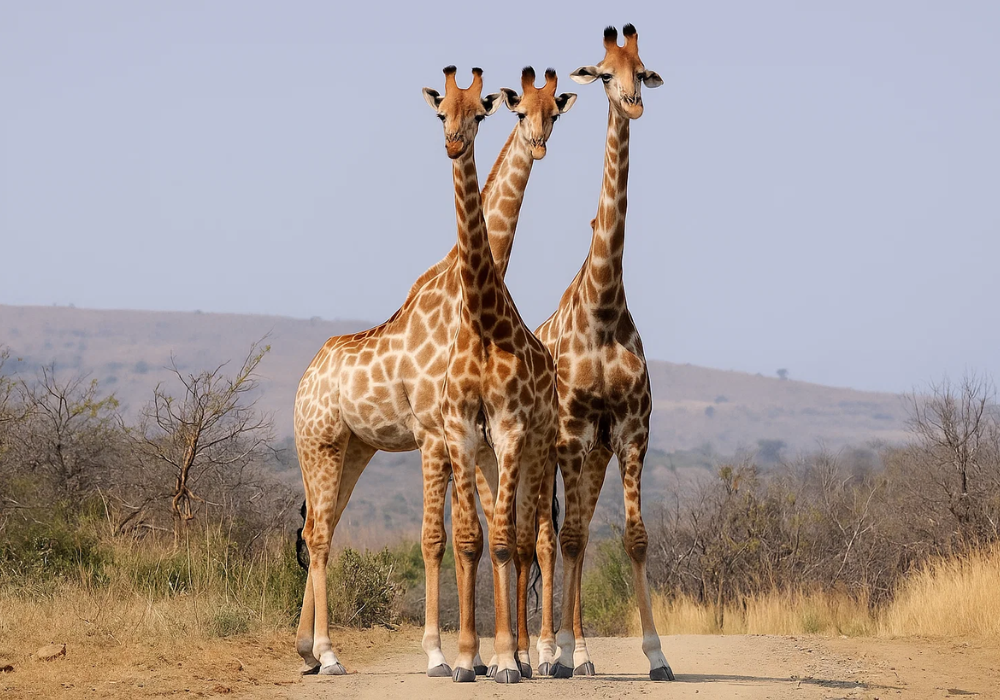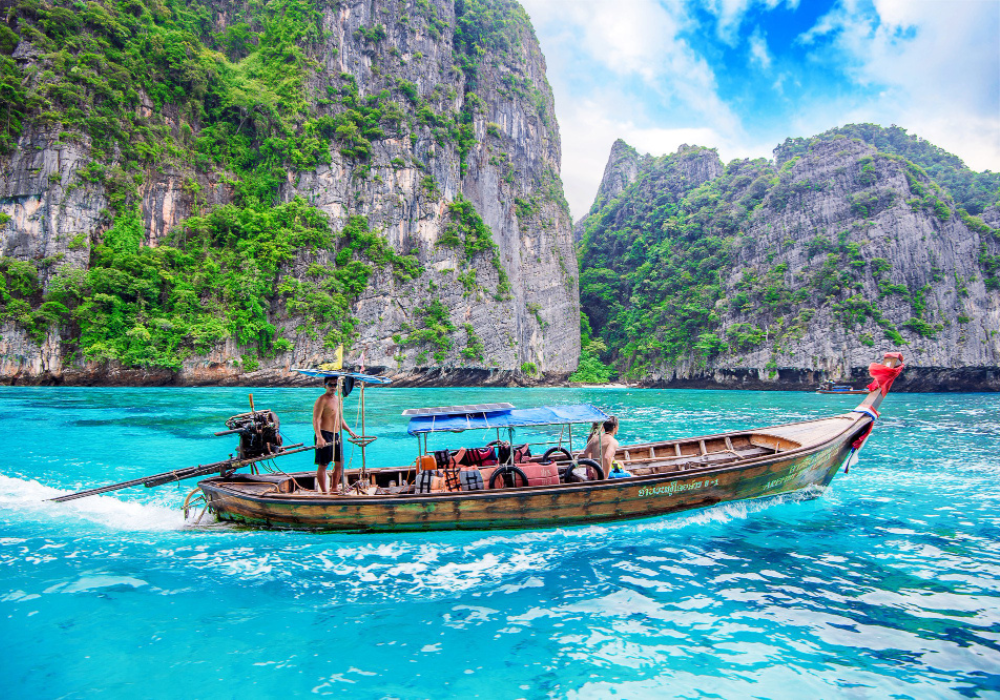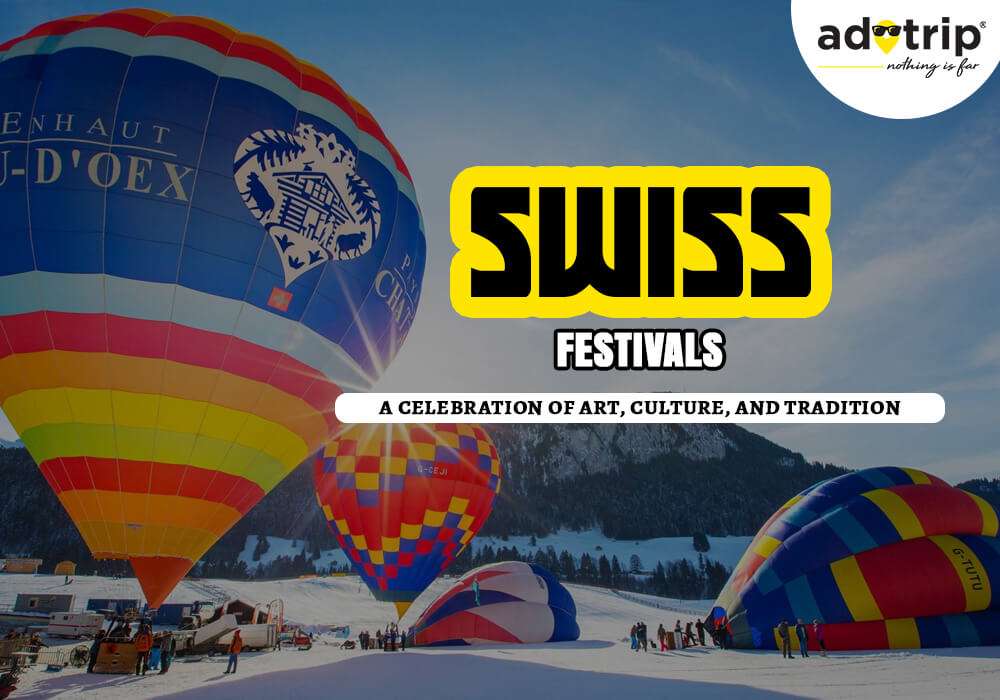
Last Updated At: 10-May-2024
Traditions and Culture Of Switzerland
The Culture of Switzerland is a captivating blend of traditions, diversity, and artistic expression that reflects the nation's unique identity. Rooted in centuries of history, Swiss culture is a harmonious convergence of folklore and multilingualism in Switzerland, creating a dynamic tapestry that resonates across the country's picturesque landscapes. From the iconic Swiss Alps to the vibrant cities, Switzerland's cultural landscape is a testament to its rich heritage and ability to embrace modernity while cherishing its roots.
With its enchanting tales and customs, Swiss folklore weaves through the fabric of everyday life. The stories of William Tell, Heidi, and the legendary Alpine horn players are part of the collective Swiss consciousness, embodying the spirit of independence and connection to the land. Swiss folklore nurtures a sense of community and identity. It serves as a bridge to the nation's past, fostering a deep appreciation for the values and traditions that have endured through generations.
Swiss Culture and Traditions
Multilingualism in Switzerland is another hallmark of its culture, underscoring the nation's commitment to unity within diversity. With four official languages—German, French, Italian, and Romansh—Switzerland is a model of linguistic coexistence. This linguistic richness reflects the country's multiculturalism and reinforces the notion that geographic boundaries do not confine Switzerland's identity. Multilingualism promotes cross-cultural understanding, contributing to Switzerland's global outlook and fostering a sense of inclusivity that defines its cultural ethos.
- The Melody World | Swiss Traditional Music
- Flavours of the Alps | Exploring Swiss Cuisine
- Festive Revelry | Cultural Festivals in Switzerland
- Architectural Splendour | Switzerland's Built Heritage
- Literary Narratives | Swiss Literature and Cinematic Arts
- Spiritual Journeys | Religious Beliefs in Switzerland
- Artistic Expressions | Crafts and Art in Swiss Culture
- Enchanted Tales | Exploring Swiss Folklore
- Legacy Unveiled | Swiss Cultural Heritage
- Linguistic Diversity | Multilingualism in Switzerland
1. The Melody World | Swiss Traditional Music
Swiss traditional music is an intricate tapestry woven from the threads of history, culture, and the breathtaking landscapes that define the nation. It is a musical journey that echoes through the alpine valleys and resonates with the hearts of the Swiss people. Rooted in regional diversity, each area of Switzerland boasts unique musical traditions, instruments, and melodies that mirror its inhabitants' surroundings and experiences.
With its hauntingly beautiful sound, the Alpine horn serves as a poignant symbol of Swiss traditional music. Yodelling, an iconic vocal technique, weaves intricate patterns of highs and lows that echo the rhythms of the mountains. These musical expressions are a source of entertainment and a means of preserving the nation's heritage and connecting generations.
2. Flavours of the Alps | Exploring Swiss Cuisine
Swiss cuisine is a gastronomic celebration that unfolds against the majestic Alps and the rich tapestry of cultural influences that have shaped the nation. Swiss cuisine is as diverse as the landscapes that define the country, ranging from hearty mountain fare to delicate treats that embody Swiss craftsmanship's artistry. Fondue, a beloved Swiss dish, brings people together in a communal dining experience, where molten cheese catalyses connection and conversation. The alpine pastures, where cows graze and produce some of the world's finest milk, contribute to the creation of Swiss cheeses that are renowned globally. Swiss chocolate, crafted with precision and passion, captures the nation's dedication to quality and innovation.
3. Festive Revelry | Cultural Festivals in Switzerland
Swiss festivals are vibrant celebrations that embody the nation's diversity, creativity, and communal spirit. From the lively Fasnacht carnival in Basel to the Geneva International Film Festival, these events showcase Switzerland's commitment to nurturing artistic expression, fostering community, and upholding traditions. The Swiss National Day on August 1st marks a collective celebration of the nation's freedom and unity, where fireworks illuminate the skies and bonfires symbolise the shared aspirations of the Swiss people.
The Alpine festivals, such as the Desalpe, pay homage to the Swiss farmers and their cattle returning from the high mountain pastures. These festivals are a living testament to the Swiss people's deep connection to their land, roots, and shared heritage.
4. Architectural Splendour | Switzerland's Built Heritage
Switzerland's architectural splendour is a tangible manifestation of its history, creativity, and the enduring spirit of its people. It is a journey through time, where ancient castles and modern marvels stand side by side, reflecting the country's evolution and ability to integrate tradition with innovation. The architectural landscape is as diverse as Switzerland's geographical terrain, offering a rich tapestry of styles, influences, and narratives. Mediaeval castles like Château de Chillon evoke echoes of the past, narrating stories of knights and nobility. Swiss chalets, nestled against the backdrop of snow-capped mountains, symbolise the Alpine way of life, capturing the essence of cosiness, resilience, and a harmonious relationship with nature. Urban centres like Zurich and Geneva blend modernist and contemporary architecture, revealing Switzerland's role as a hub of innovation and artistic expression.
5. Literary Narratives | Swiss Literature and Cinematic Arts
Swiss literature and cinematic arts are:
- Reservoirs of cultural identity.
- Reflecting the nation's intellectual depth.
- Linguistic diversity.
- Engagement with the human experience.
Swiss authors, poets, and filmmakers have crafted narratives that traverse the landscapes of thought, emotion, and social consciousness. The written word and visual storytelling serve as windows into the Swiss psyche, capturing the nuances of Swiss life, values, and aspirations.
Whether expressed in German, French, Italian, or Romansh, Swiss literature spans a spectrum of genres and themes. The works of Friedrich Dürrenmatt, Max Frisch, and Hermann Hesse delve into existential questions, human nature, and the intricate relationship between individuals and society.
6. Spiritual Journeys | Religious Beliefs in Switzerland
Switzerland's spiritual landscape is a mosaic of beliefs, reflecting the nation's commitment to diversity, tolerance, and the pursuit of deeper meanings. Religious beliefs have played a significant role in shaping Swiss culture, values, and societal norms. While Christianity, Protestantism and Roman Catholicism form the majority, other faiths' presence underscores Switzerland's multicultural identity. The architectural grandeur of cathedrals, churches, and chapels is a testament to Switzerland's spiritual heritage. The Grossmünster in Zurich, with its Romanesque architecture, is an iconic landmark and a symbol of Switzerland's association with the Protestant Reformation. The Swiss people's reverence for nature and environmental conservation is often intertwined with their spiritual practices, reinforcing the connection between humanity, faith, and the natural world.
7. Artistic Expressions | Crafts and Art in Swiss Culture
Artistic expressions are the brushstrokes that paint a vivid portrait of Swiss culture, capturing the nation's creativity, innovation, and connection to its heritage. Swiss craftsmanship, whether in the form of visual arts, textiles, or design, reflects meticulous attention to detail and the desire to preserve traditional skills while embracing contemporary aesthetics.
Swiss crafts encompass a range of disciplines, from intricate watchmaking to delicate lacework and wood carving. Swiss artists have a rich history of contributing to various artistic movements, such as the Dada movement in Zurich, which challenged conventions and redefined the boundaries of art. The Kunsthaus Zurich and Fondation Beyeler are just a few examples of institutions that celebrate Swiss artistic expression, showcasing the works of Alberto Giacometti, Ferdinand Hodler, and other Swiss masters.
8. Enchanted Tales | Exploring Swiss Folklore
Swiss folklore is a treasury of enchanting tales, myths, and legends woven into the nation's cultural identity fabric. These stories passed down through generations, carry the Swiss people's wisdom, values, and collective imagination. Swiss folklore is a portal into the mysterious realms of the past, reflecting the symbiotic relationship between nature, humanity, and the supernatural. Myths of giants, water spirits, and alpine creatures vividly depict the Swiss landscape's significance in shaping the nation's identity. The legend of William Tell, who shot an apple off his son's head, embodies the spirit of freedom and resistance against oppression. Swiss folk music, characterised by its unique instruments and storytelling melodies, amplifies the resonance of these tales, allowing them to echo through time.
9. Legacy Unveiled | Swiss Cultural Heritage
Switzerland's cultural heritage is a tapestry interwoven with threads of history, traditions, and the collective endeavours of its people. From ancient Alpine communities to contemporary urban centres, the legacy of Swiss cultural heritage is a testament to the nation's ability to evolve while honouring its roots. This heritage transcends mere artefacts; it embodies Swiss society's values, innovations, and shared memories. Museums like the Swiss National Museum in Zurich provide a glimpse into the country's multifaceted history, showcasing artefacts that chronicle Switzerland's formation, struggles, and triumphs. Swiss cultural heritage is not limited to tangible objects; it includes the customs, languages, and rituals that bind generations together.
Also Read: best tourist places to visit in switzerland
10. Linguistic Diversity | Multilingualism in Switzerland
Linguistic diversity is a defining feature of Swiss culture, reflecting the nation's commitment to inclusivity, communication, and celebrating different perspectives. Switzerland's multilingual landscape is a testament to its role as a melting pot of cultures, languages, and identities. German, French, Italian, and Romansh coexist, forming a mosaic representing the various regions and communities of Switzerland. Each language adds a unique layer to the Swiss cultural tapestry. From the elegance of the French to the musicality of the Italian and the enigmatic charm of Romansh, linguistic diversity is a mirror that reflects the nation's unity in diversity. Swiss literature, music, and cinema embrace this linguistic richness, fostering connections between the Swiss people and the world beyond their borders.
In the diverse linguistic landscape of Switzerland, multilingualism stands as a symbol of unity in diversity, offering a bridge between cultures, languages, and identities. As we contemplate the intricacies of Swiss culture, we see a nation that embraces its past while shaping its future, honouring its ancestors' legacy while nurturing its youth's aspirations. The culture of Switzerland is a mosaic that reflects the beauty of its landscapes, the richness of its history, and the warmth of its people. It invites us to appreciate the tapestry of traditions woven over centuries, contributing to the vibrant global cultural fabric. Switzerland's culture is a living, breathing entity, an ongoing story that continues to evolve and inspire, captivating hearts and minds both within its borders and around the world. So, voyagers, be ready to immerse yourself in Switzerland's rich and enchanting culture, plan your trip with Adotrip, and kick-start your journey.
With us, nothing is far!
Book Switzerland Tour Packages
Frequently Asked Questions about the Culture of Switzerland
Q1. What religions like Christianity, Judaism and Islam exist?
A1. Christianity is the predominant religion in Switzerland, with smaller communities of Judaism and Islam.
Q2. How strong is Swiss pride in political neutrality?
A2. Swiss pride in political neutrality is strong due to the following:
- The long-standing tradition of neutrality
- Contributing to stability and diplomacy
- Symbolising national identity and values
- Playing a role in international organisations
- Fostering trust and respect on the global stage
Q3. How important are Swiss folk arts like yodelling and alphorns?
A3. Swiss folk arts like yodelling and alphorns are important due to the following:
- Preserving cultural heritage
- Showcasing regional traditions
- Enhancing national identity
- Contributing to tourism and cultural events
- Creating a sense of unity and pride
Q4. What role do Alpine pastimes like skiing play?
A4. Alpine pastimes like skiing play a significant role in Switzerland by:
- Contributing to tourism and economy
- Showcasing natural beauty and landscapes
- Fostering a culture of outdoor activity
- Influencing art, music, and lifestyle
- Building a national and international reputation
Q5. How culturally tied to cheese is Switzerland?
A5. Switzerland is culturally tied to cheese due to the following:
- A long history of cheese production
- Regional cheese varieties and traditions
- Role in culinary heritage and cuisine
- Cultural festivals and events celebrating cheese
- Symbolising Swiss identity and rural traditions
Q6. How diverse is Switzerland regionally and linguistically?
A6. Switzerland is diverse regionally and linguistically due to:
- Four official languages (German, French, Italian, Romansh)
- Distinct cultural traditions in different cantons
- Varied landscapes and climates
- Multilingual education and communication
- Regional autonomy and identity
Q7. What unique festivals feature cow fighting or hot air balloons?
A7. Unique festivals in Switzerland feature:
- Cow fighting events showcasing strength and dominance
- Hot air balloon festivals displaying colourful displays in the sky
- Highlighting regional traditions and creativity
- Drawing tourists and fostering community spirit
- Adding to Switzerland's diverse cultural tapestry
Q8. How known for watches, clocks, and banks are Swiss craftsmanship?
A8. Swiss craftsmanship is known for:
- Precision in watchmaking and clock production
- Reputation for high-quality timepieces globally
- Banking industry with a history of financial stability
- Contributing to Switzerland's economic strength
- Symbolising precision, reliability, and excellence
Q9.What is Swiss cuisine influenced by cheese fondue?
A9. Swiss cuisine influenced by cheese fondue is characterised by the following:
- Emphasis on dairy products like cheese
- Shared communal dining experience
- Regional variations in ingredients and preparation
- Reflecting Alpine tradition and comfort food
- Symbolising conviviality and social bonding
Q10. How enduring is café culture in Switzerland?
A10. Café culture in Switzerland is enduring due to:
- Traditionally strong coffee-drinking culture
- Promoting social interaction and relaxation
- Iconic Swiss pastries and desserts served in cafés
- Integration of café culture into daily life
- Contributing to Swiss urban and leisure lifestyle
--- Published By Adotrip
Latest Blogs

Cash in the Wild: My Safari Adventure Across Kenya with Only...

One Day Picnic Spot Near Pune - Adventure, Trekking and Natu...

One Day Picnic Spots Near Mumbai - Monsoon, Adventure, Beach...

The Best Places to Go in Thailand in 2025







 Dubai
Dubai Malaysia
Malaysia USA
USA





